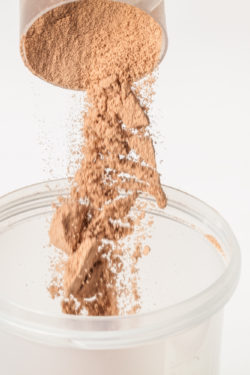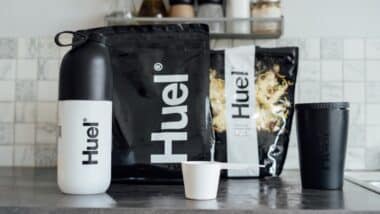 Manufacturers of protein powder supplements are the current targets of questioning consumers who are demanding to know the truth about the protein content in the products they buy.
Manufacturers of protein powder supplements are the current targets of questioning consumers who are demanding to know the truth about the protein content in the products they buy.
Many companies have been accused of a practice known as protein spiking, amino spiking or nitrogen spiking. In these practices, a manufacturer adds various compounds such as amino acids, creatine and other non-protein ingredients to their products.
These compounds are not proteins themselves. But when the products with these added compounds are tested using certain nitrogen-based protein testing methods, the test results show an artificially raised protein content.
To measure the amount of protein in supplements, these tests measure the supplement’s nitrogen content. The protein content is then calculated based on those nitrogen levels.
If an amino acid is added to the supplement, it can artificially inflate the tested amount of protein present. However, only “complete” proteins such as milk derivatives casein or whey or egg proteins are true protein ingredients.
Consumers may understand that amino acids are the building blocks of protein and may think the addition of amino acids to protein powder is helpful. However, the amino acids in question are being used to boost the nitrogen content. Consumers who use such products may be consuming less protein than they need or desire.
Using true sources of protein is costly. Certain companies are being accused of spiking their protein supplements with other ingredients in order to cut costs and thus increase profitability.
Legal Action Taken over False Advertising Claims
A protein powder class action lawsuit has already been filed by consumers against several powder manufacturers who have been accused of protein spiking. These companies produce products under the brand names BioHealth, Core Formulations and Rogue Nutrition.
According to plaintiff Bernardo DeLeon, the powder manufacturers state on their products labels that they use “NO PROTEIN SPIKING!! NO useless AMINO spikes like ‘Amino Acid Complex’ or ‘Taurine’. ONLY 100% WHEY PROTEIN.”
However, DeLeon claims that testing showed that the amount of protein listed on the label for various products was significantly higher than what was actually contained in the product.
DeLeon’s false advertising class action lawsuit raises claims for negligent misrepresentation and conspiracy, breaches of express warranty, and violations of California False Advertising Law, California Consumers Legal Remedies Act, California Business & Professions Code, California Unfair Competition Law.
Filing a Protein Powder False Advertising Lawsuit
An investigation is now looking into allegations of protein spiking in the manufacture of certain brands of protein supplements. Consumers may qualify to participate in this investigation for free if they purchased one or more of the following powders:
- BioHealth Nutrition Precision Blend & Precision Iso
- Core Formulations Core 8 & IsoCore
- Rogue Nutrition Rogue Whey
Qualifying consumers may be eligible for a free consultation with a knowledgeable consumer protection attorney.
The Protein Powder False Advertising Class Action Lawsuit is Bernardo DeLeon v. Michael Santana DBA Core Formulations et al., Case No. BC 611621, in the Superior Court for the State of California for the County of Los Angeles.
Join a Free Protein Powder False Advertising Class Action Lawsuit Investigation
If you purchased any of the protein powders listed below, you may qualify to file a protein powder lawsuit or protein spiking class action lawsuit.
- Core Formulations Core 8 & IsoCore
- Rogue Nutrition Rogue Whey
- BioHealth Nutrition Precision Blend & Precision Iso
ATTORNEY ADVERTISING
Top Class Actions is a Proud Member of the American Bar Association
LEGAL INFORMATION IS NOT LEGAL ADVICE
Top Class Actions Legal Statement
©2008 – 2025 Top Class Actions® LLC
Various Trademarks held by their respective owners
This website is not intended for viewing or usage by European Union citizens.














